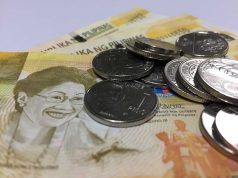Bigger budget for infrastructure, health sectors eyed
By Beatrice M. Laforga, Reporter
THE government is planning to allocate more funds for infrastructure projects and the healthcare sector under next year’s budget, as the country adapts to a “new normal.”
“We will prioritize the ‘Build, Build, Build’ [program], digital infrastructure, health, housing, water and sanitation, all of these are the basic foundation of a new normal and we will put a bit more money in the budget to support all of these,” Socioeconomic Planning Acting Secretary Karl Kendrick T. Chua said in an online forum on Thursday.
Mr. Chua said they are also eyeing “more flexibility” in next year’s national budget so agencies can respond “at any given time” to emergencies in case of a new crisis or another wave of infections.
Under the “Build, Build, Build” program, he said higher priority will be given to infrastructure projects that have a bigger impact on economic growth and “are most ready, within budget and [have] elastic impact to restore jobs.”
“We hope that the private sector is ready to support us and we hope that we are able to include more health and more digital projects,” he said.
According to Mr. Chua’s presentation, the government will prioritize projects such as health system infrastructure, production of pharma-grade medical supplies, strategic inventory of medicines and equipment, implementation of the Universal Health Care Law, research and development as well establishing a virology and pharma development center.
Mr. Chua said the government is ramping up digitalization efforts. “(We) want everything to be digitalized in the government so hopefully in the coming years, no one will need to go to a government office to transact, everything will be online,” he said.
Another recommendation is to put more funds into improving the productivity of the agriculture sector, he said.
In a directive on Wednesday, the Budget department extended the submission deadline of budget preparations for 2021 until June 1 to give government agencies more time to prepare for their budget proposals for next year
The government’s spending plan is set at P4.335 trillion for next year, higher by 5.7% than this year’s P4.1-trillion plan.
Mr. Chua said these reprioritization efforts and the push for structural reforms will not “cost too much money but they can radically make the economy much stronger and can provide new opportunities for growth.”
“All of these are what we propose to do in the next 12 months, some of them are easy to do, some of them are more difficult but we think these are the basic elements for us to be able to survive and do better in the new normal,” he said.
Meanwhile, National Economic and Development Authority (NEDA) Undersecretary Rosemarie G. Edillon said the agency is currently drafting the economic resiliency plan called “Plan for a Healthy and Resilient Philippines.”
Ms. Edillon said the plan, which will take around three months to complete, will recommend new programs and structural reforms for 2021-2022.
Other reforms that will be pushed in the next two years are a progressive idle land tax for agriculture; flexible learning options for education, and inclusion of health-related crisis in disaster and emergency response efforts.
To save jobs, the economic team is considering a new labor market policy, skills retooling, pension portability and a temporary, targeted wage reduction.
They are also eyeing digital delivery of social protection programs, an unemployment insurance program, and wider financial inclusion where a family would have at least one bank account holder.
NEDA is also proposing route rationalization and better mass transport structures such as bus stops and a bus rapid transit system. It will also support the public utility vehicle modernization program, adoption of an automated fare collection system and promote walkways and bike lanes.
For logistics, it will recommend “rationalization of freight system, establishment of strategic warehousing, cold-chain systems, and food terminals.”
The structural reforms can be implemented through legislation, according to Mr. Chua.



